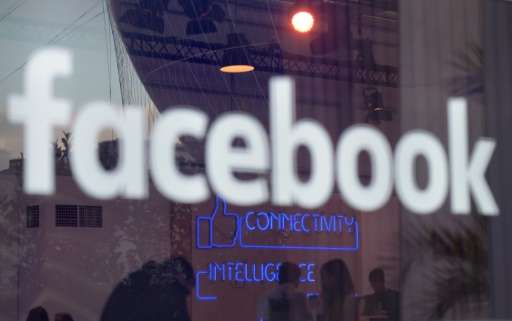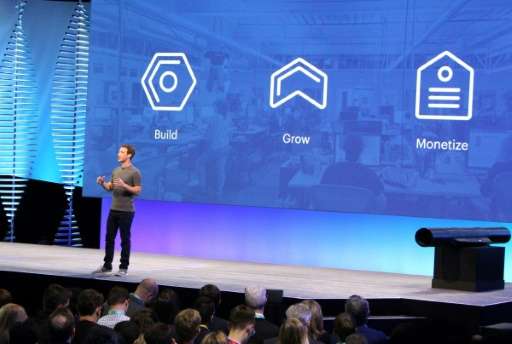Facebook revealed Terragraph technology which uses low-cost components to create networks in dense urben areas to improve wireless Internet availability
After taking to the air with drones to provide Internet to remote spots, Facebook on Wednesday unveiled new land-based systems to provide connectivity to people in urban settings.
"We are really going at this problem from every possible angle," Facebook co-founder and chief Mark Zuckerberg said of efforts by the social network to make Internet connectivity more widely available around the world.
Facebook used its annual developers conference to reveal Terragraph technology that uses low-cost, off-the-shelf components to create antenna-based networks in dense city settings to improve wireless Internet availability.
The technology "incorporates attributes and industrial design required for fast, attractive and affordable deployment across cityscapes," Neeraj Choubey and Ali Yazdan Panah of Facebook said in a blog post.
"Its reduced interference and ability to operate in non-line-of-sight conditions increases customer reach."
Terragraph "nodes" can be mounted outside high-rises or other big buildings and connected to Internet connections inside.
Terragraph is being tested at the Facebook campus in Silicon Valley and will soon start a broader trial in the nearby California city of San Jose.
Facebook chief and co-founder Mark Zuckerberg discusses Messenger and other platforms at the leading social network's annual developers conference in San Francisco on April 12, 2016
A Project ARIES at Facebook has a goal of building a test platform for efficient ust of energy and unused radio spectrum that could provide a way to deliver Internet to communities outside of cities.
"We are interested in developing this technology to harness the incredible gains in providing communications to rural communities from city centers," Choubey and Panah said.
"The hope with systems such as these is that costly rural infrastructure can be avoided while still providing high-speed connectivity."
Facebook stressed that it was not interested in being an Internet service provider, but wanted to show those who do what could be possible.
"Moreover, we would like to make this technology open to the wireless communications research and academic community," the blog post said.
Satellite to launch
The leading social network in coming months will launch its first satellite to provide Internet service to sub-Saharan Africa, Zuckerberg said at the conference.
Facebook's mission to connect the world has included building solar-powered Aquila drones capable of transmitting data using lasers.
"If you had told me 12 years ago that we were going to be building a plane, I would have told you that you are crazy," Zuckerberg said as he showed off a lightweight piece of a drone during a keynote presentation.
"Well, here we are."
Facebook estimates that more that four billion people don't have access to the Internet for reasons that include access and cost.
As part of an often-shared long-range vision of letting people anywhere share whatever they want with anyone using the Internet, Zuckerberg on Wednesday announced the creation of a "Building 8" team devoted to building new hardware products for connecting the world.
Facebook hired Regina Dugan away from an Advanced Technology and Projects group at Google to head the new team, according to Zuckerberg.
Before joining Google, Dugan was director of the Defense Advanced Research Projects Agency devoted to innovations for the US military.
"I'm excited to have Regina apply DARPA-style breakthrough development at the intersection of science and products to our mission," Zuckerberg said.
Facebook will devote hundreds of people and invest hundreds of millions of dollars to the effort as it pursues a 10-year roadmap that includes virtual reality, artificial intelligence, and online connectivity, according to Zuckerberg.
© 2016 AFP
























